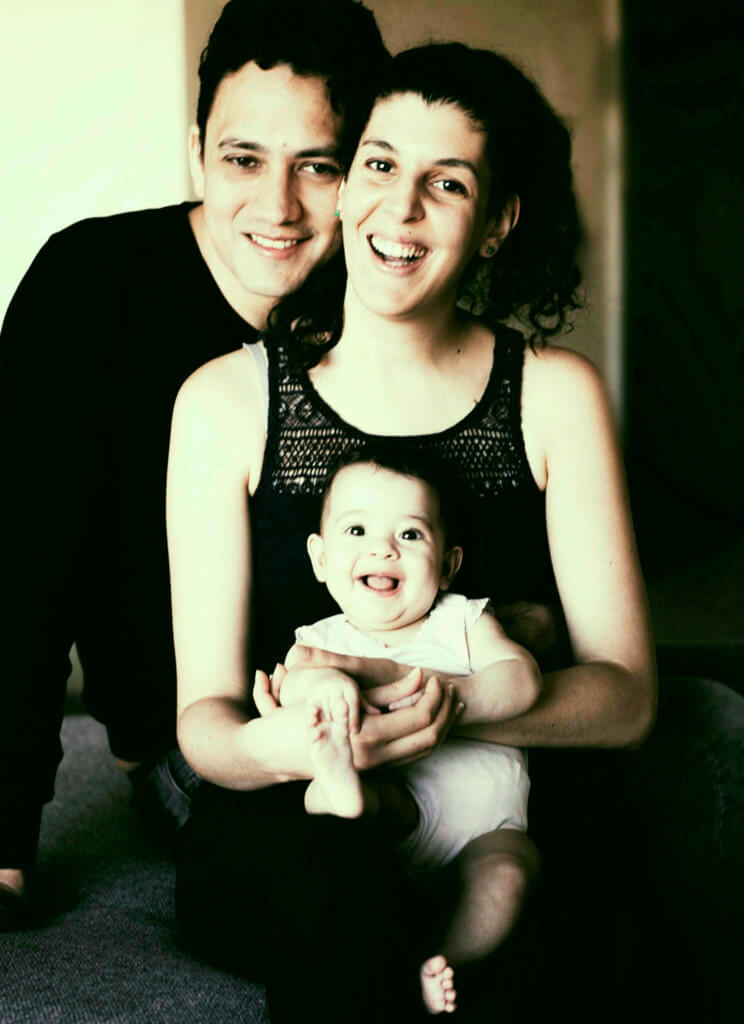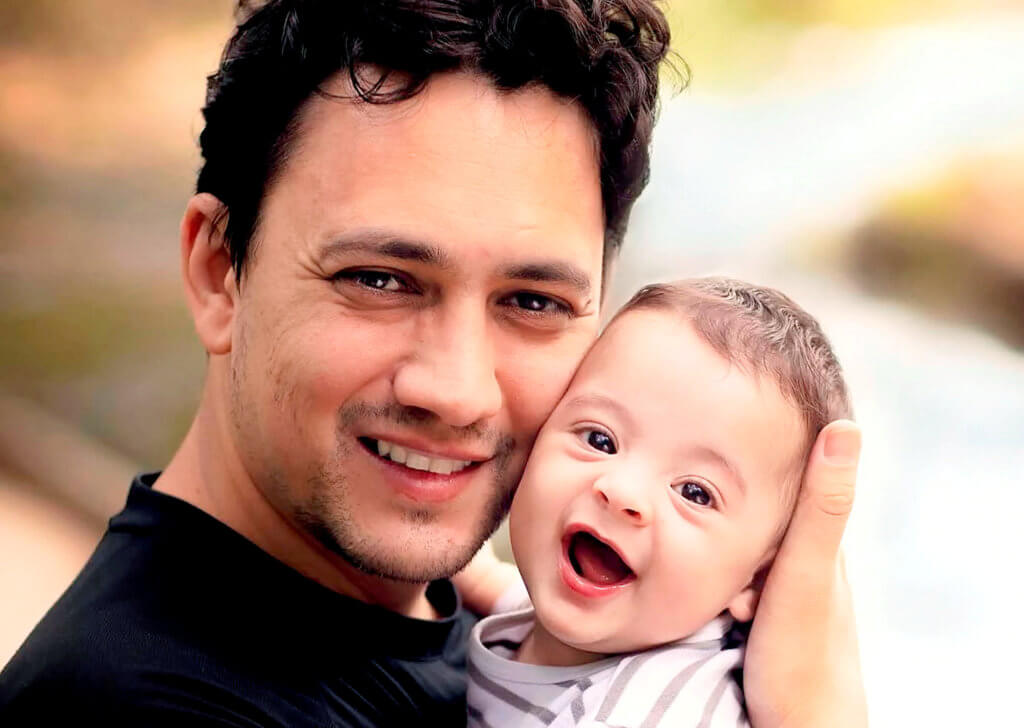It’s extremely rare, but sometimes symptoms that mysteriously stick around despite treatments could be signaling something far worse than what it was thought to be. That’s the tragic case for a new dad who died after his brain tumor was misdiagnosed as sleep apnea.
James Lamerton, 40, was being treated for the sleep condition and was taking medication for migraines. His family says he had also been complaining about exhaustion, but put it down to having a newborn baby.
James died in November last year after he was found to have brain tumor in his pineal gland – later identified as fatal grade four glioblastoma (GBM). The teacher and musician from Leigh-on-Sea in Essex, England left behind his wife, Myriam and two-year-old daughter, Layla.
Since James’s death, Myriam, 32, has been working with Brain Tumour Research in the UK to raise awareness of the invisible diseases.
“We need to change people’s perceptions of brain tumors and for me that means changing the narrative to make people realize that this could also happen to them and the people they know and love. We have to do more,” she says in an interview per South West News Service.
Myriam, who works in the philanthropy department of a tech company, says they first thought something was wrong when James was frequently getting up to use the bathroom overnight.
“James had been tired for a while but I’d put it down to us having a newborn,” she says. ”When he started waking up regularly in the night to go to the toilet, I thought that was odd and encouraged him to go to the doctor to get checked out for prostate cancer, which is something his father had had.”
The tests came back clear, but after suffering from headaches, dizziness and experiencing problems with his vision, the pair went to a sleep clinic in September.

“It was there we were told James had sleep apnea and his dizziness and headaches were the result of him not sleeping enough, which seemed to make sense but between August and mid-October I took him to the doctor eight times,” says Myriam. “James looked dreadfully pale so I told him to go to bed and relax but seven days later he was still there. Every day I told him he needed to go to the hospital but he insisted on resting. I wish I’d done something sooner but, in truth, I know it wouldn’t have changed anything.”
James’ condition continued to decline as he was unable to eat and experiencing severe pains in his eye. He was swiftly given an MRI that detected his tumor shortly after. Doctors also discovered a build-up of fluid known as hydrocephalus, which had to be drained.
James underwent surgery for his tumor, but suffered post-op complications and died shortly after.
“I held James’ hand as he took his last breath and his heart stopped. He died peacefully, which was kind of beautiful in a way,” says Myriam. “When you think about death you often think it’s going to be scary and loud but James looked beautiful and healthy from the outside, which is what made it so surreal for us as a family.”
Now she’s working to help others from seeing the same fate as her late husband.
“Whilst incredibly heart-breaking, James’ story is not unique; the pain his family are going through is, sadly, something we see time-and-time again,” says Charlie Allsebrook, community development manager for Brain Tumour Research. “We’re trying to change that but it’s only by working together that we will be able to improve treatment option for patients and, ultimately, find a cure. We just hope that people sit up and pay attention because brain tumors are indiscriminate and could strike anyone of us at any time.”
South West News Service writer Lauren Beavis contributed to this report.












